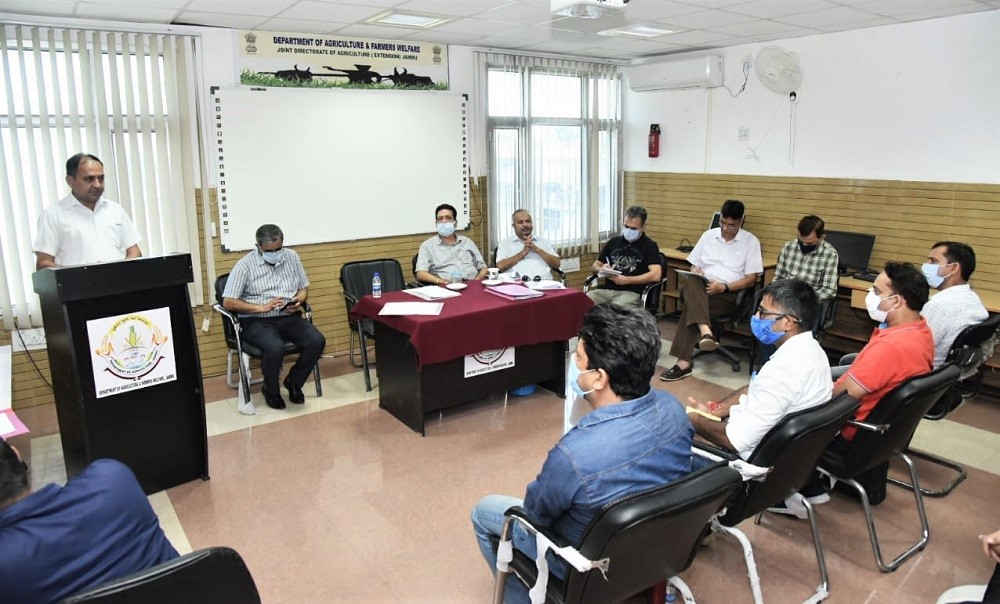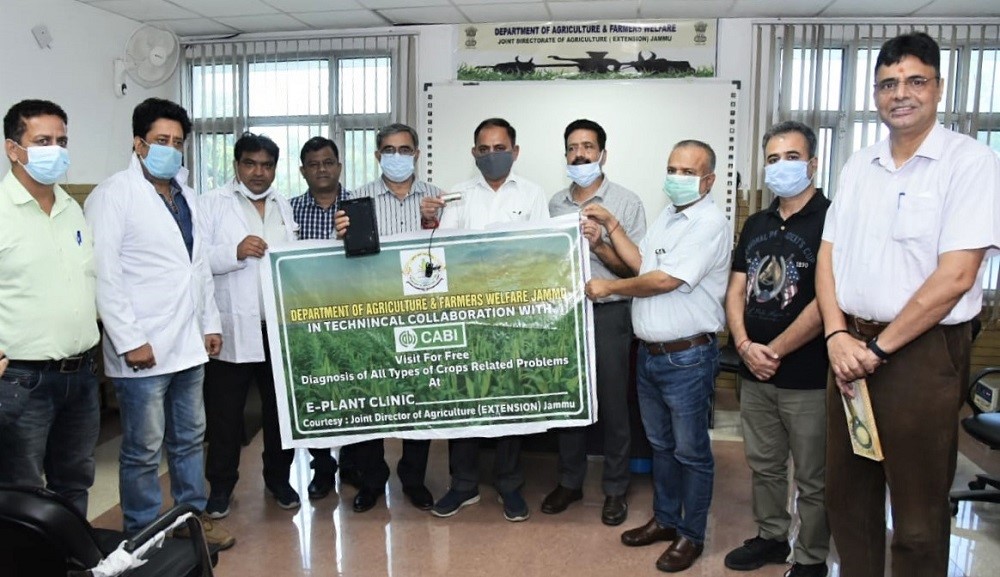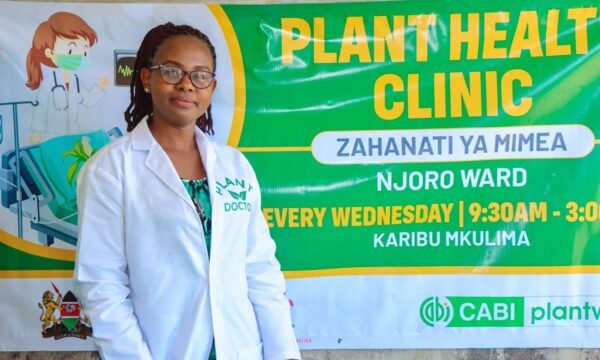The role Plantwise plant doctors play in helping smallholder farmers mitigate crop losses due to pests and diseases has been lauded by K.K. Sharma – the Director of Agricultural Production & Welfare Department in Jammu, India.
The Director, speaking as part of a one-day orientation programme for plant doctors of Jammu Division, said the challenges of climate change and the desire to strive towards organic farming can only be tackled and achieved by the early diagnosis of crop pests and diseases which recently established ePlant clinics can offer.

Plantwise programme
Plantwise is a global programme led by CABI, which helps farmers lose less of what they grow to plant health problems. Working closely with national agricultural advisory services, an established global plant clinic network, run by trained plant doctors, operates where farmers can find practical plant health advice.
Plant clinics work just like clinics for human health: farmers visit with samples of their crops, and plant doctors diagnose the problem and make science-based recommendations on ways to manage it. Currently, there are more than 300 plant doctors operating in the country.
eClinics, Jammu and Kashmir
In May, CABI reported how ePlant clinics opened in a further five districts of Jammu province in the Union Territory of Jammu and Kashmir in collaboration with the Department of Agriculture, Jammu. In total 40 ePlant clinics are operating in ten districts of Jammu division helping farmers diagnose their crop issues and offering recommendations to manage them.
K.K Sharma impressed upon the plant doctors to popularize the concept of plant health clinics at grassroots level by staying in regular contact with farmers and continuing to conduct awareness programmes on a frequent basis.
Importance of data
He also highlighted the importance of real-time data to evaluate the likely spread and distribution of a particular pest or disease in an area as part of an early warning system for farmers.
During the meeting, the Director then handed over magnifying glasses, surgical blades, laboratory aprons, lawn umbrellas, tables, chairs and nameplates to help the successful running of the plant clinics.

Plant doctors
In addition, Dr Vinod Pandit, Programme Leader, Development Communications and Extension at CABI’s centre in India, elaborated on K.K. Sharma’s concerns before Arun Khajuria, who is in charge of the plant clinic in Jammu, explained in more detail the workings of the facility. He said plant doctors are trained to be vigilant in the field for pests and diseases and report as and when such incidences occur.
Other matters discussed included plans for the efficient running of e-plant clinics on a weekly basis as well as a proper monitoring and regular capacity-building programme.
Additional information
Photos: Credit: CABI.
About Plantwise
Since its launch in 2011, CABI’s Plantwise programme has been introduced to 34 countries in Africa, Asia and the Americas. The aim was to increase food security and improve rural livelihoods by reducing crop losses. This was achieved by establishing sustainable networks of local plant clinics, run by trained plant doctors, where farmers receive practical plant health advice. Working in close partnership with over 170 in-country partners, Plantwise strengthened national plant health systems from within, enabling countries to provide farmers with the knowledge they need to lose less of what they grow.
Acknowledgement
CABI gratefully acknowledges the financial support of the Foreign, Commonwealth & Development Office (FCDO), United Kingdom; the Directorate-General for International Cooperation (DGIS), Netherlands; the Swiss Agency for Development and Cooperation (SDC); the European Commission (DG DEVCO); the Australian Centre for International Agricultural Research (ACIAR); the Ministry of Agriculture of the People’s Republic of China; Irish Aid; and the International Fund for Agricultural Development (IFAD).
Related News & Blogs
Training Sri Lanka’s agro-dealers in pesticide risk reduction
Agro-dealers provide vital support to Sri Lanka’s farmers. These agricultural input suppliers are often the first point of contact for smallholders who need advice on plant protection products. However, agro-dealers often lack formal training in safer…
3 July 2025




